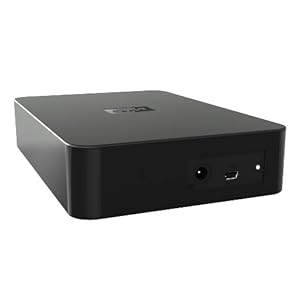How Data Is Stored On A Hard Drive
When a file is saved on a computer, the data is stored on the hard disk platter's magnetic coating. This magnetic coating on the platters is the 'glue' that keeps your data. Any damage to that magnetic coating means that there is data loss as each piece of missing coating contains data. So a platter missing a little bit of that coating has a good occasion of a victorious data salvage as opposed to a platter that has had weighty amounts of that magnetic coating removed or destroyed.
How Data Is Stored On A Hard Drive

How Data Is Stored On A Hard Drive
How Data Is Stored On A Hard Drive
How Data Is Stored On A Hard Drive
Hard Drive Failure Parts
Typical hard disk components that fail include:
Platters Hard disk platters, or spindle, is rotated by an electric motor. The speed of this rotation is measured in rotations per little (Rpm) and the higher the doing of the hard drive...the higher the Rpm is which increases the reading and writing of data to the platters. Any covering caress to the platters can cause serious damage to the magnetic strip the contains the data. This includes dust, finger prints, water, and most foremost of all, the heads of the hard drive. Platter damage is the most serious type of damage to cause hard drive failure.
Heads (Head Crash) When the hard disk is not actively in use, the heads are parked until the hard drive needs to read or write data again. It is when this head moves covering the super thin upholstery of air between platters that causes the head to crash and touches the hard disk platter.
Firmware Firmware is the agenda instructions placed on the chips on the Printed Circuit Board (Pcb). Each firmware revision is exact to its hard drive type and each hard drive can go straight through dozens of firmware revisions to increase that singular manufacturer's disk drive's performance. The older the hard drive, the more difficult it could be to find a working firmware for that exact hard disk model.
Printed Circuit Board (Pcb) The Pcb of the hard drive is the electronics of the hard disk that manages and operates the hard drive. If a Pcb becomes damaged it is often supplanted with an selfsame Pcb with the same firmware on the primary hard drive. Typically Pcb damage is from water or fire, but there are other reasons why a Pcb would fail. And many times a faiLED Pcb affect other aspects like firmware or heads.
Types of Hard Drive Failure
Generally speaking, when a disk drive fails it is due to one of the following causes:
Media Failure Otherwise known as a head crash (as described above), the heads of the hard drive have physically touched and damaged the magnetic coating on the platters.
Mechanical Failure generally speaking, any electronic failure to the hard drive falls in this category. Fire, water, electrical damage to the hard disk would need 'parts' replacement.
Pcb Failure As described above, Pcb failure falls in the mechanical failure type and typically can be 'swapped out' for an selfsame Pcb for that exact hard drive type. Along with the strict firmware for that disk drive, a Pcb change can be a difficult type of hard drive repair if the hard drive is an older model.
Logical Drive Failure This type of hard drive failure is commonly the least damaging to the data. This type of error commonly means that the operating principles of the computer (or utilities) can see the drive, has marked it as unallocated space, but because the computer's Mft is corrupted or damaged, can't read the data. Hard drive failure of this type is not that destructive and the chances of a perfect victorious data salvage are high.
Types of Non-Mechanical Hard Drive Failure
Other causes for data loss and why data salvage would be required could comprise the following:
Natural Disasters extreme weather conditions that are out of our operate can make a bad day even worse. Either the computer was submerged in water due to a flood, scorched by fire or in the presence of a lightning strike, there is still a occasion to recover data from the hard drive.
The Human Factor Accidentally deleting files, formatting the wrong hard drive, and attempting to upgrade you operating principles only to have it fail are tasteless issues that come up. Also, as particular as most citizen are with their Laptops, a small drop from the couch to the floor or down a flight of stairs, is the type of forceful jarring to the disk drive that could cause serious damage to the hard drive platters.
Viruses E-mail typically are the way most viruses are spread from computer to computer. Also, visiting questionable websites that have scripts, malware or spyware waiting to comprise your principles and put your data at risk. It is recommended to run the most recent anti-virus software to safe your data from this sort of data loss and to cut the need to need data salvage service.
So how do you safe yourself from losing your data? Back it up! However, should you still need data salvage services, be sure to use a business that specializes in hard drive data recovery.
How Data Is Stored On A Hard DriveFriends Link : Buy Shopping Discount Maltipoo Dogs Sale Puma Powercat 5.10 Football Backpack Stainless Steel Cookware

No comments:
Post a Comment